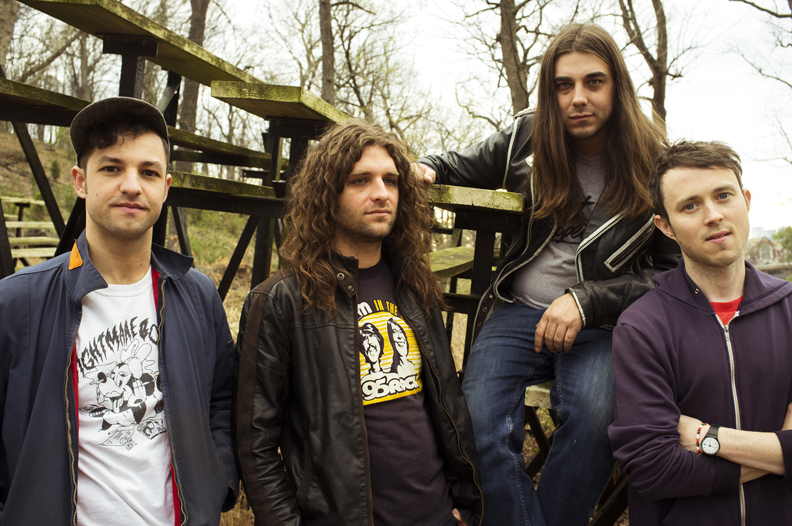Lee Bains III & the Glory Fires
8:30 p.m. Friday
Norman Music Festival | The Depot Stage
Lee Bains III will be preaching to the choir as he hollers and cries through his Saturday evening slot, headlining The Depot Stage at Norman Music Festival. He’s a Southern boy playing left-of-center rock ‘n’ roll with a left-of-center point of view, the tried-and-true sound of his native Alabama and all his musical ancestors battered around with a punk cowlick and garage-rock fluidity, a sonic match for his confessed struggle with his roots. Like many attending NMF, he’s proud of where he was born and accepts those roots as the center of who he is … but that doesn’t mean he doesn’t struggle like hell to justify a conflicted past, shaky present and clouded future of his home’s politics and social struggles. He celebrates all the good — the birthplace of rock ‘n’ roll and warm Southern hospitality — as he writhes tortured in the bad: the oppression, the racism, the persecution of those who aren’t cut from the same Dixieland cloth. It’s a daily fight, but one he knows he could never shy away from.
“It’s a very rich and complicated relationship, one that I will continue to write about for as long as I’m writing,” Bains explained. “I kind of view my place and my home as I would a family member. It’s not just an entity to that I’m bound to; it’s one that has a large hand in shaping the very substance of who I am. My identity without my home there doesn’t exist.”
Bains hasn’t just buried his head in the dusty record sleeves of the voices who shaped the music landscape of the mid-20th century, a lover of blues and all the destinations it’s since spilled into. He’s a history buff, too, a scholar of the twisted path his — and our — region has taken, breeding warmhearted, polite people who somehow extinguish that spirit offered when the neighbor they encountered doesn’t look as familiar. It’s very much the road from the Civil War to the Confederate Flag-stickered pickup trucks of now that informed the content of Dereconstructed, The Glory Fires’ sophomore LP and debut with Seattle indie mecca Sub Pop.
“Man, I was just reflecting on the way in which the Southern identity has taken on a very white-centric and Civil War-centric quality. And also, in the way in which it has become intermingled with this American jingoism,” Bains said. “I read papers about it and looked through history and, counterintuitively, I think a lot of that grew out of the period of Reconstruction. Somehow, it emboldened that overly romanticized, lost-cause Confederate history along with this stars-and-stripes-waving, militaristic attitude that has been prevalent in the South since that time. I thought that it was a fitting way of describing the process that the songs on that record were trying to undertake, which is to dismantle the sort of monolithic idea of Southern culture and identity from that point at which it really took form.”
It’s a frustrating, but tragically relatable thing to see the long-searing problems of the South leak into a larger, more national context, as the marring incidents that once seemed reserved to the cowardly hiding in the dark of the night in the thick of the woods are becoming more public, more prominent and more widespread, blood spilling onto day lit sidewalks for all the world to see. As tragedies spark up in Missouri, New York and, just recently, Oklahoma, Bains makes a point to comment on them all to his fans and followers, sharing the victims’ and their families’ pain and hoping that maybe music — his or otherwise — can help steer the national discourse to greener pastures, hopefully sooner rather than later.
“There’s so much going on right now; our country is in the process of a transition, or even awakening, socially,” Bains said of Ferguson, Eric Garner and Eric Harris. “I hope that art and music can speak to more and more of that. There’s always art that is speaking to those questions. Maybe what ebbs and flows is the public’s desire to hear it and rally around the folks that are addressing it. There’s a lot to be talked about when it comes to race and class in this country. It’s not just regional; it’s an American identity crisis that has become so politicized with what I see as racist undertones — and overtones, at times — so you’ve got to think these are important conversations to have. Art has a way of maybe nudging along those conversations.”





